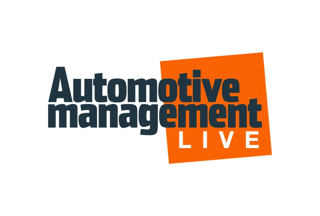AM Live 2023 saw industry experts gather to discuss the imperative task of creating a seamless and unified digital ecosystem for electric vehicles (EVs).
Currently, EV sales are dominated by the fleet and new car market, but there will be a shift towards more retail customers and used EVs in time. This will mean a much tighter window to organise everything around charging the vehicle, particularly if the customer has off-street parking and is looking to reduce costs by installing a home charger and switching their home energy tariff.
The session explored how the current customer journey for EVs can be fragmented, particularly with post-sale support including arranging a home charger, explaining public charging infrastructure and help with switching to smart home energy tariffs and reduce EV running costs as much as possible.
The insights shared by the AM LIve panellists underscored the need for a seamless end-to-end journey which could only be delivered through close collaboration between automotive and energy stakeholders.
The session was steered by Raj Lyons Chohan, chief executive of Affinity EV, and panellists included Andrew Mouat, head of smart mobility at Scottish Power, Euan Cameron, marketing director for Peter Vardy, and Jacqui Barker, global OEM director for Keyloop, who shared their insights on the challenges, opportunities and strategies for delivering an enhanced EV customer experience.
The session kicked off with Chohan who said the automotive industry was undergoing a transformative shift in the automotive industry, which was witnessing the convergence of the automotive and energy sectors.
He said the journey from early adopters to the early majority now requires a strategic approach to education, information dissemination and guidance to help the customer navigate the dual journey of both purchasing and owning an electric vehicle in a rapidly evolving landscape.
 Euan Cameron at AM100 motor retailer Peter Vardy Group highlighted current market dynamics, pointing out the significant increase in EV supply which worryingly contrasted with a decreasing number of actual leads, stressing the importance of addressing the difficulty of conversion following that initial surge in inquiries.
Euan Cameron at AM100 motor retailer Peter Vardy Group highlighted current market dynamics, pointing out the significant increase in EV supply which worryingly contrasted with a decreasing number of actual leads, stressing the importance of addressing the difficulty of conversion following that initial surge in inquiries.
“We were swamped with inquiries as a business,” he reported. “We probably got about two and a half times the number of inquiries that we actually required on electric vehicles. But we still had a conversion issue because we didn't have the knowledge to help convert. And now it's become even more pronounced because now we’re at that point where the demand has dropped slightly so that guest experience needs to be a lot better and we need to do a far better sales job of being able to guide and convert people from an EV perspective.”
Cameron also touched upon the challenge of making the EV purchasing process frictionless, acknowledging the historical disconnect between automotive and energy sectors. That may have been easier to manage for early adopters, who had conducted extensive research, but now servicing the early majority needs a far more streamlined and integrated approach.
The conversation turned to the imperative of not merely recommending charging solutions but creating an end-to-end digital journey for EV customers. "It's key for us as an industry to not just throw that customer over a wall and say ‘now go find your own charger’. It's crucial to create a seamless end to end digital journey," said Chohan.
Andrew Mouat from Scottish Power said the consolidation and integration of energy supply systems presented an opportunity to streamline processes to support the growing expectation of customers. "Increasingly, we're seeing that expectation from customers that the approach is more streamlined and more joined up and less fragmented and disparate," he said.
The focus then turned to the pivotal role which data management systems (DMS) can play in the automotive industry, particularly in the context of EVs and the evolving consumer landscape. This discussion shed light on the challenges and opportunities presented by the influx of data from various sources and its potential to transform the entire customer journey.
 The panel here agreed that there should be a rethink of the industry's approach to leveraging data with the key lying in understanding and utilising data as a valuable asset to help the industry reevaluate its strategies and embrace innovative ways to harness the power of information for a more connected and customer-centric automotive future.
The panel here agreed that there should be a rethink of the industry's approach to leveraging data with the key lying in understanding and utilising data as a valuable asset to help the industry reevaluate its strategies and embrace innovative ways to harness the power of information for a more connected and customer-centric automotive future.
Jacqui Barker emphasized the need for education as OEMs progressively introduce new products to support consumers to make informed choices, and how the systems provided by businesses such as Keyloop facilitate the transfer of vast amounts of data from OEMs to retailers through its partner ecosystem. She added that it was not just about purchasing a new vehicle; it was also about educating drivers to optimise the use of their vehicles throughout the ownership lifecycle.
"Loyalty within a brand happens within the life of the vehicle," Barker noted, underlining the significance of continuous engagement and information dissemination. She said the idea was to keep customers informed throughout the vehicle's life through a more flexible approach based on real-time data.
Barker said the challenge lies in unlocking the power of data not only from a DMS but also from the vehicles themselves. “The data that we're seeing coming out of vehicles is going to power completely different experiences and the technology that sits behind that is really going to change the way that we live and work with and keep customers on a journey.”
Chohan raised a practical concern about connecting data from DMS to various entities, such as energy providers like Scottish Power and charger manufacturers, to enhance dealership visibility.
Euan Cameron added that in addressing the challenges faced by salespeople there was a need to play to the strengths of sales staff and not burden them with becoming experts in diverse areas like electrical engineering and energy tariffs. The focus should rather be on making the sales process frictionless by partnering with trusted entities, allowing salespeople to concentrate on what they do best – selling.
Cameron's perspective echoed findings from a recent McKinsey report which identified a lack of dealer knowledge as one of the key factors hindering EV adoption. By partnering with organisations like Affinity EV as a trusted partner, the goal is to provide a seamless and knowledgeable sales process, eliminating obstacles and accelerating the purchase outcome.
The discussion then shifted to the importance of developing a holistic approach, involving energy providers and EV chargers as gateway products. Andrew Mouat spoke here of the need for seamless customer interaction, building long-term relationships - beyond just selling a charger system as a single opportunity - to help decrease the overall cost of ownership.
“The EV charger in the vehicle is the gateway product but then you start to talk about your heat and power requirements in the home and then how those hardware technologies integrate. Throughout the day, utilisation varies and complements each other so that you're not just adding layers and layers of consumption but actually using these technologies to balance things and make things more efficient.”
Jacqui Barker underscored the need for dealerships to become immersive experience centres stating: "It's about creating an experience, not just four walls or a dealership but an experience centre." She highlighted the role of technology in this transformation, noting, "as technology continues to evolve, it allows us to not only give customers the ability to do more online, but we have the ability to track what consumers are doing so that we can then intuitively serve them with the right messaging at the right time. So we need to think the way that we use data and technology to make that retail process much more intuitive.”
 Barker also stressed the importance of simplifying complex data for consumers, explaining, "A really big gap in this industry has for so long been the ability to compare Thing A with Tthing B which is very difficult because the product might be different in a number of different ways - so don't overcomplicate because as humans, there are only so many decisions we can make in a day."
Barker also stressed the importance of simplifying complex data for consumers, explaining, "A really big gap in this industry has for so long been the ability to compare Thing A with Tthing B which is very difficult because the product might be different in a number of different ways - so don't overcomplicate because as humans, there are only so many decisions we can make in a day."
Chohan also pointed out the significance of empowering salespeople early in the process. "What we've done with the Affinity EV platform is to embed it in the sales process, whereby we're empowering the salesperson to allow that customer to start their energy journey much earlier," adding that post-sale introductions of products should be avoided.
Euan Cameron here illustrated the evolution of the EV purchasing process at Peter Vardy: "Literally, at the point of inquiry, we can set someone up into the Affinity EV system, so they can start doing the pre-work," he said, adding that there were tangible benefits to being able to pre-qualify leads through helping offer advice about tariffs and the charge point at the inquiry stage. “Guests are almost prequalifying themselves before we even get them in to test drive and purchase so the process has probably already started a week to 10 days earlier than what it was by ourselves alone.”
Scottish Power’s Mouat agreed that an acceleration at this stage also allows his business to identify installation issues. “We price obviously on a standard installation but not every house is the same and not every customer the same as there may be variances that need to be identified and costed, processed and approved. So it allows us to do that much earlier in the process and it's less of a surprise to the customer when issues may occur."
The panel collectively agreed on the transformative role of data and technology in reshaping the automotive retail landscape, as highlighted by Chohan, who concluded: "Weve got to leverage the data we have to deliver a truly truly end to end digital experience."





















Login to comment
Comments
No comments have been made yet.